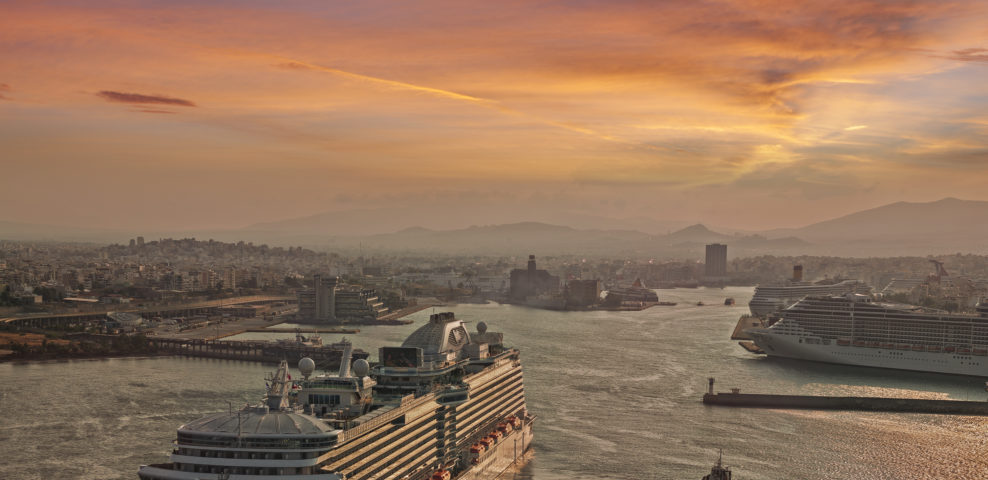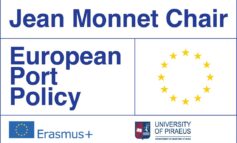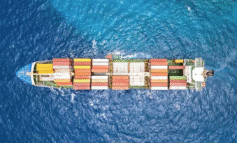With shipping accounting for approximately 20% of global discharges of wastes and residues at sea, reducing discharges of all kind of ship-generated waste and cargo residues into the sea is closely linked with the protection of the marine environment. Ports have a key role to play in order to achieve this goal.
The development of adequate port reception facilities (PRF), together with the establishment of systems that provide incentives for ships to use these facilities, are major elements aiming in a process to reduce ships’ discharges into the sea
In their latest port study, PortEconomics members Thanos Pallis and Aimilia Papachristou – joined by Charalampos Platias (Ministry of Maritime Affairs & Insular Policy, Greece) – focus on the state of waste reception facilities in the case of cruise ports. With the growth of cruise activities continuing, the cruise world takes initiatives aiming to handle the produced externalities. Among the key environmental issues to be addressed is the handling of the various wastes produced on cruise ships. In recent times, cruise lines and ports have put a lot of efforts into reducing, selecting and managing generated wastes implementing the requirements of MARPOL 73/78 as well as those imposed by the European legislation.
Readers of PortEconomics might register & freely download the authors’ version : Pallis, A.A. Papachristou A.A. and Platias C. (2017) Environmental policies and practices in Cruise Ports: Waste reception facilities in the Med. Spoudai Quarterly Economic Journal, 67(1), 54-70.
About the study
The International Maritime Organisation (IMO) has moved to address the delivery of ship-generated waste and cargo residues via initiatives aiming at enhancing the availability and suitability of PRF. In particular, regulations and requirements defining which wastes can be discharged into the marine environment have been adopted as part (Annex) of the International Convention for the Prevention of Pollution from Ships (MARPOL 73/78).
The European Union (EU) has followed within the same vein. Targeting to further enhance the presence of effective PRF in the region, European institutions adopted in 2000 the relevant Directive 2000/59. Today, fifteen years later, the provisions of this directive are under review. The requirements of this framework, and the consequent applications, differ depending on the port market. There are different requests in the case of cargo and oil markets, from those in the case of cruise ports. This is not least because different wastes are produced in the case of each shipping market.
The study analyses the state of PRF in the second biggest cruise region of the world, the Mediterranean and its adjoining seas. It examines the extent that the current practices have achieved a satisfactory level of compliance to the emerging regulatory framework. The study does so via a survey of the existing conditions and practices followed by 40 port entities that manage 52 cruise ports in the region. The findings record the available facilities, technologies, and services suggesting widespread effective correspondence to required adjustments.
The theme of the study corresponds to calls for broadening the scope of port studies to integrate in port governance research environmental issues. As the review of studies in port management, economics and policy by Pallis et al (2011) revealed, scholars have only occasionally paid attention on how environmental issues are governed, and this is mostly due to the examination of developments in the Californian ports of Los Angeles and Long Beach (see also: Notteboom et al, 2013). Yet, the EU environmental policies targeting the sustainable development of ports, and the broader transportation sector are inextricably linked with a number of governance issues (Platias, 2016), thus these port governance issues deserve attention.
The study generates more than just knowledge on the emphasis that cruise ports give in order to address environment challenges. It also provides practical recommendations on what can be done so as to further secure a sustainable cruise future, when the European regulatory framework governing PRF is under review
The surveyed ports standing as the hosts of a significant part of global cruise activities. In 2015, when cruise ports in the region hosted in total approximately 14,000 cruise vessels and a total of over 34 million passengers movements, the ports that participated in the survey hosted 14.8 million passenger movements, representing approximately 44% of the total (MedCruise, 2016). Thus, the study generates more than just knowledge on the emphasis that cruise ports give in order to address environment challenges. It also provides practical recommendations on what can be done so as to further secure a sustainable cruise future, when the European regulatory framework governing PRF is under review.
The port study is among those that have been presented at the International Conference ECONSHIP2015 and has been chosen to be published in a special issue titled Shipping and Ports at Crossroads of the SPOUDAI journal.
References
Notteboom, T.E. Pallis, A.A., de Langen, P.W. and Papachristou, A.A. (2013). Advances in Port Studies: The contribution of 40 years Maritime Policy and Management. Maritime Policy and Management, 40(7), 636-653. [Download the authors’ version of the article here]
Pallis, A.A., Vitsounis, T., De Langen, P. and Notteboom, T.E. (2011). Port Economics, Policy and Management: Content Classification and Survey. Transport Reviews, 31(4), 445-471.
Platias, Ch. (2016). EU Policy for the Environment and the Sustainable Development. Policy and Governance Issues. I. Sideris Publications, Athens.
Readers of PortEconomics might register and freely download the authors’ version of the study.












